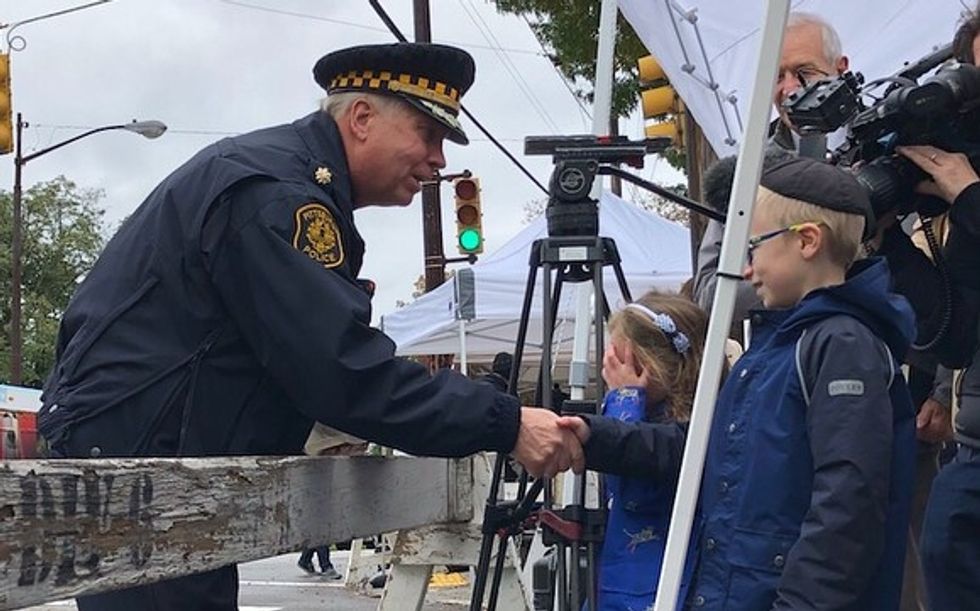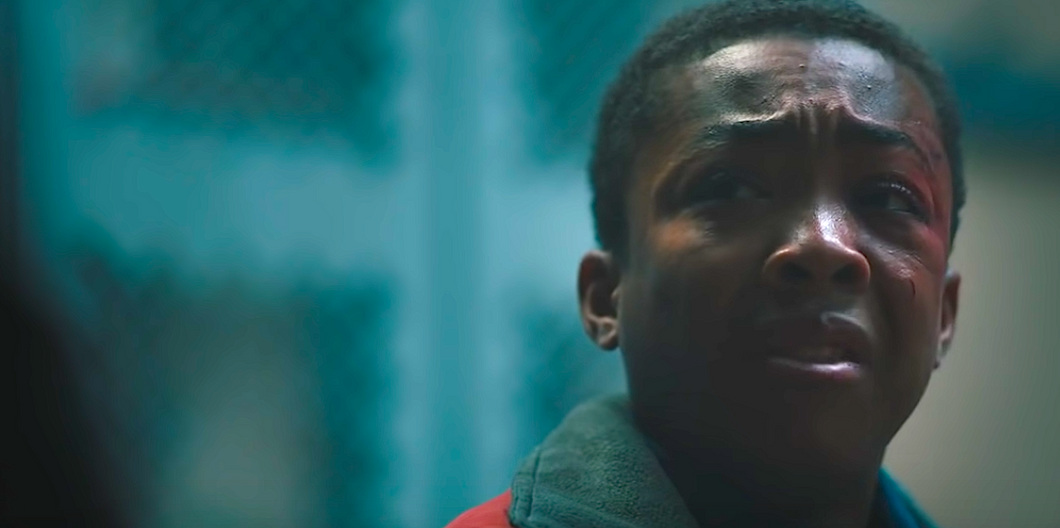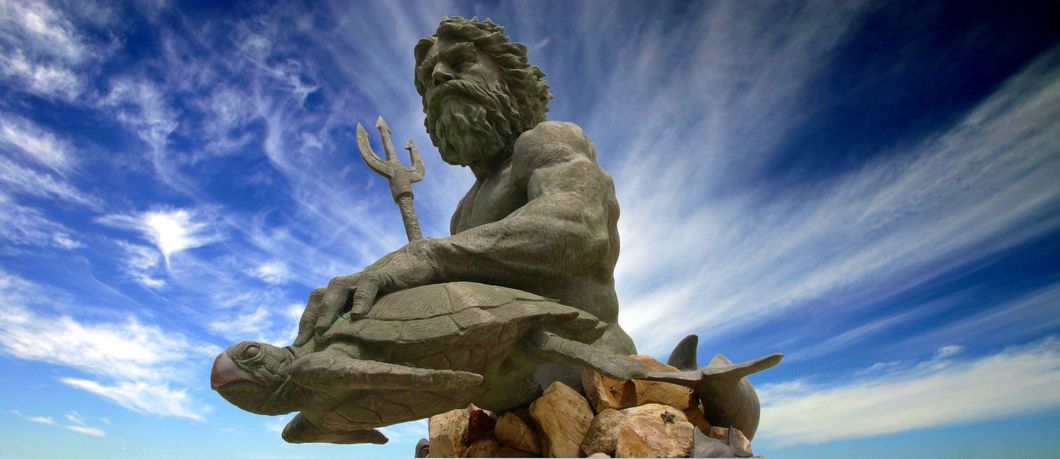Tragedies happen every day. Sometimes, they make national headlines. Most times, though, they stay silent, are kept local, personal, private. This past weekend, a tragedy took place, one that shook this nation's foundation to its core. Prior to that, another tragedy, and prior to that, a series of 14 potential tragedies spread out over the course of a single work week.
While all of these tragedies need to be spoken about, I am here to speak about the most recent, seeing that it is the closest to myself, personally. This particular tragedy, as there are far too many to keep track of now, is the murder of 11 congregants on Saturday, October 27, 2018, at The Tree of Life Synagogue in the Squirrel Hill neighborhood of Pittsburgh, Pennsylvania.
This is not the first tragedy to befall the Jewish people, especially in this country of ours, and it will certainly not be the last. It is, however, the deadliest, with 11 innocent lives being taken and 6 more, most of which being those of first responders, currently hang in the balance.
This particular tragedy reminds me of a very similar one that took place fairly recently as well, where a man killed 9 innocent church-goers in Charleston, South Carolina. Both took places in houses of worship, both took innocent victims who didn't deserve to be taken from us, and both were perpetrated by terrorists.
The term "terrorist" should not be confined to describe a certain actor of fear. Whether their identification as a terrorist is based on race, religion, ideology, or otherwise, so long as their goal is to perpetuate fear in a community or people, they are a terrorist.
Currently, the term is most closely identified with those from the Arab world, but not so long ago it was mainly attributed to those from Eastern Europe. While it may be seen to many to describe those of the Muslim faith, it must be remembered that not too long ago when the word "terrorist" was used in the headlines, the person they spoke of may have been Christian.
That's all not to say that those groups don't commit acts of terrorism, rather, they aren't the only ones who do. Anyone and everyone is capable of terroristic actions, it is simply that most of us decide to not commit these vile, evil acts. However, some fail to make this decision; they fail to pass one of the simplest tests of humanity: are you able to feel for your fellow man?
When someone answers "no" for any reason, whether it be sexual orientation, race, gender, political standing, religion, or any other reason, that person is one to be concerned about, for hatred for any one person or people will, undoubtedly, lead to hatred for many more peoples.
The tragedy that took place in Pittsburgh this weekend is somewhat ironic. The neighborhood in which the synagogue was located, Squirrel Hill, is the home of many prominent members of Pittsburgh's society. It's the home of the current Pittsburgh Steelers' head coach, the mayor of Pittsburgh, and the county executive for the county Pittsburgh is in. However, more importantly, it was the home to one of the most prolific and important speakers of our time, Mr. Fred Rogers.
Mr. Rogers introduced decades of children to the ideas of love and respect for their fellow man, ideals that many may seem to stray from or fail to recognize in times of anguish, pain, or guilt. Earlier this year, a film about Mr. Rogers's life came out, the documentary "Won't You Be My Neighbor?" and if you haven't seen it yet, I highly recommend you do. Personally, it gave me a renewed sense of faith in humanity.
That faith was challenged once again this weekend, as it has countless times in the past and will undoubtedly be tested again in the coming future. And yet, here we stand, ready for the next time our faith is tested, ready to show that we will not back down. That has been the struggle of the Jewish people for many centuries. We have endured slavery, persecution, violence, persecution, and genocide over more than our 6,000 years of recorded history, and yet we still persist.
Those who wished to see our end have come and gone, and those who stand with us often endure, and the greatest part is that this dichotomy for our enemies and our allies isn't our doing; rather, it is the doing of the Greater Good of the world. Whether you refer to this Greater Good as luck, coincidence, science, Allah, God, or any other name you so choose to apply to it, so be it. To me, though, Its name is God.
The Jewish people have a covenant with God, a covenant that was being exercised that Saturday morning, as it has been for countless centuries, and shall continue to be exercised. What's changed from this tragedy is nothing. The Jewish people have endured and shall continue to endure, but that is our blessing, that we may continue to endure. That no one, hundreds, thousands, or millions of things will change the identity of the Jewish people. We are a global tribe with global ideas, ones that may be misunderstood, hated, or outright feared, but we shall not betray them, just as our God shall not betray us.
Tragedies like these happen every day. Whether bigger or smaller, they are all still tragedies of the grandest scale. When the cemetery of my synagogue, Temple Beth Shalom, was vandalized with the symbols and phrases of hatred towards the Jewish people from only a few generations ago, the community of Jewish people did not shrink. Yes, we recoiled, as one would from any blow, but we came back up, as we always have, stronger than ever.
The prayer service at the cemetery, the markings still in full display, drew hundreds of people from the community, not just the Jewish community, but neighbors, friends, strangers, those of different religions from us, and those who we didn't know were of our own. It was a sign of solidarity and strength for a community, not just a Jewish one, but a community of peoples, stronger and more united than ever.
This vandalism took place just mere days before Yom Kippur, one of the holiest days in Judaism, and when my synagogue held Yom Kippur services that year, the synagogue was filled with more faces than I had ever seen. People I had known for years, people I hadn't gotten to know yet, and people I'd never seen, all congregated for the sake of tradition and the sake of showing that we are not in fear.
And on that night, as with every other night, the doors of the synagogue stayed open. The doors on the Tree of Life synagogue in Pittsburgh, too, were open the day of the tragedy. As was the case with my synagogue, there are probably members of their individual community who may wish to close those doors. "We must protect ourselves," they will say, and their argument will be one that many can sympathize with, but, as always, the doors will remain open. For that is the way of the Jewish people; we may feel the urge to close those doors to protect those already within, but we leave them open so that they may also serve those without.
When the doors to a sanctuary are opened, they offer refuge from the outside, a place that can be scary, mean, hurtful, and dangerous. When we close the doors we demonstrate weakness and fear, but when we leave them open, as we always have, we show that we are not yet prepared to turn away those who seek help, whether it is ours or not.
The modern Jew may not always hold these lauded ideals, nor would any member of any group be expected to fully fall in line with their group's beliefs or preconceived notions, but this is the ideal the Jewish people strive to reach. To keep the doors open and, when we are struck, to stand back up and, in solidarity, stare into the abyss and wait for the next blow, for it is a blessing that we may continue to receive these blows in that we are still here to receive them.
To be here and no longer receive these blows would be perfect, but man is not perfect. For Jews, only God is perfect, so we are content with the imperfections of man and mortal existence, even if this means pain and suffering.
It is this pain and suffering that you will have seen and will continue to see many Jewish leaders demonstrate. While others may say to hold your emotion, that it is a show of weakness, the Jewish people prefer to embrace that emotion for it is what powers us. Our sorrow for those who suffer, our longing for those taken from us, our misery in the past, but also our hope for our fellow man, our conviction in looking towards the ever-approaching horizon of the future, and our love for God. We embrace these emotions, we display them. They are on our walls, in our writings, in our words and scripts, and in our faces, as we grieve, mourn, encourage, support, and love.
I mentioned that many times tragedies stay private, and it is important to respect that. A devastating blow to someone may best be handled by them alone, where they can cope in their own, individual way. However, it is important to know that things shall endure, both good and bad. However, the pains and pleasures of those endurances are the proof that they are worth suffering through and living with, for it is a blessing and privilege to do so.
The Jewish people do not ask for pity, we ask for solidarity, and as we look towards the future, we know those who wish to do us harm will continue to amass at our walls, yet we will, as we always have, leave our doors open.

















